
Search and rescue as we know it will soon be a thing of the past as the Government today announced the long-anticipated privatisation of helicopter services in the UK. This means the end of RAF and Royal Navy involvement in search and rescue, and the scrapping of the fondly regarded but ageing Sea King helicopters that have assisted civilian Mountain Rescue Teams for decades.
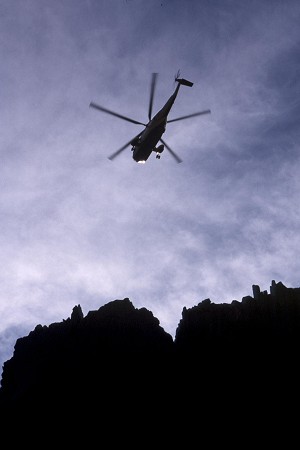
In their place the country 'is to have a new fleet of faster and more modern search and rescue helicopters', the Government has announced - though they will be run for profit and not owned by Britain at all. In the delivery of quality and value the privatisation of public services has had a mixed record to date; so should hill-goers and those involved in mountain rescue be worried?
'Mountain search and rescue teams across the country appreciate the support of the helicopter rescue crews in getting casualties out of danger and off to hospital as safely and efficiently as possible and we very much hope that the same levels of professionalism and bravery will be available in the years to come' says David Allan, Chairman of Mountain Rescue England and Wales.
The new service will see search and rescue operations provided by contracted civilian crews and the Government has today started the procurement process for a contract lasting around ten years. The plan was announced by written statement in Parliament today by Transport Secretary Justine Greening, and also heralded as a 'new era' by a Department for Transport press release.
Under existing arrangements, search and rescue is provided jointly by the Ministry of Defence (MoD) - operating a fleet of Sea King helicopters from eight military bases, with a further four civilian bases operated under contract to the Maritime and Coastguard Agency (MCA). The new arrangements will see the end of military involvement in a dedicated helicopter search and rescue service.
'This will allow the Armed Forces to focus their activity on front-line operations and enable the MoD to meet its previously announced intention to retire its fleet of Sea Kings by March 2016' says the Department for Transport press release.
Shipping Minister Mike Penning said:
'Every day around the UK, people undertake a range of activities where knowing there's a reliable search and rescue service if something goes wrong is absolutely vital.'
'The current arrangements have served us well for decades, and we are grateful to the Royal Navy and Royal Air Force for their great dedication in helping deliver an exemplary search and rescue service over the years. But we cannot ignore the fact that, after their sterling service to our country, the Sea Kings are nearing the end of their life and it is time to look to the future. Commercial operations are nothing new in this area - the MCA's search and rescue functions have been provided on a contract basis for almost thirty years - and this system has served us well. This new, long-term contract will see the UK served by some of the most modern, well-equipped helicopters in the world.'
Quite a claim; however no contract has yet been awarded and these 'most modern' aircraft are for now merely putative.
Under the plans published today, search and rescue operations at RAF Boulmer would end in 2015 and at Portland when the MCA contract expires during 2017. The winning bidder will be then be expected to operate from ten locations around the UK, but provide at least the same level of service as at present.
Today's announcement follows the cancellation of a previous search and rescue helicopter procurement in February this year. Under these former proposals, search and rescue would have been provided by a commercial operator through a Private Finance Initiative using a combination of military and civilian crews. The project was cancelled following the discovery of irregularities in the bidding process.
The Government expects to award this new contract in early 2013 to give the future service provider time to mobilise the new capability. In her statement to Parliament Ms Greening was upbeat about the future:
'Bidders for the future service will be able to put forward options which will utilise a mixed fleet of modern helicopters based on the capabilities required at each of the bases (such as range, carrying capacity and endurance). The services will be capable of delivery by different contractors providing complementary services.'
'The introduction of a modern fleet of fast, reliable helicopters will lead to major improvements in the capability available from the present mix of helicopters. Modern helicopters operating from 10 full-time bases can not only continue to meet all current service requirements but also provide faster flying times to a large part of the UK search and rescue region, as well as providing a more reliable service. This will therefore be reflected in the new contract.'
'Looking forward, we are confident that, building on nearly 30 years of civilian service provided under contract to the Maritime and Coastguard Agency, a fully civilian service will be able to maintain the same standards in the future.'
The taxpayer has been spared the up-front cost of replacing the Sea King fleet, but only time will tell whether the new arrangement will deliver a truly cost effective - and effective - service.

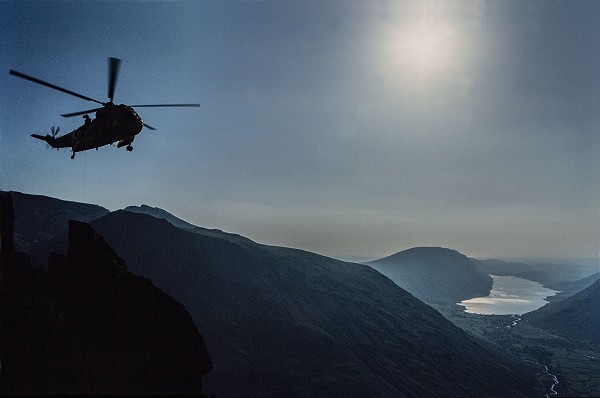

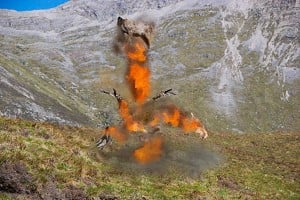
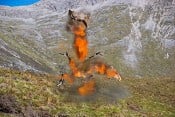




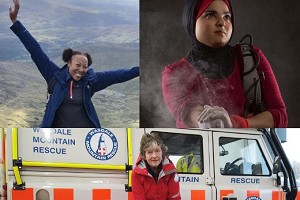

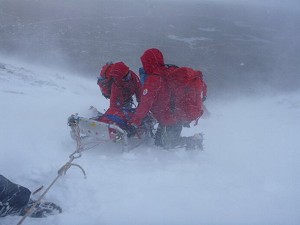
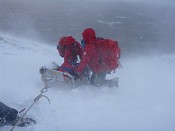
Comments